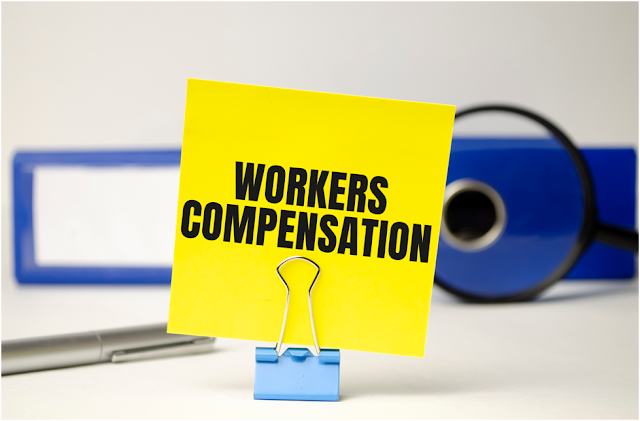Comprehensive Guide to Car Accident Injury Treatment
Your health
can be significantly impacted by auto accidents, which can result in injuries
ranging from slight pain to problems that can change your life. While the
emotional and financial burdens of an accident are significant, addressing your
physical health should be your top priority. For a speedy recovery and to
prevent long-term consequences, proper car
accident injury treatment is essential. We'll look at typical injuries,
available treatments, and practical methods to aid in healing in this guide.
Common Injuries after a Car
Accident
Car
accidents can cause various injuries, each requiring specific treatment and
care. Below are the most common types of injuries seen in car accidents:
Whiplash
Whiplash is
the result of abrupt forward and backward neck jerking, which frequently
happens in rear-end crashes. Symptoms include stiffness, pain, reduced range of
motion, and headaches. Whiplash can develop over the course of a few hours or
days following an injury, although it may not show up right away.
Broken Bones and Fractures
Broken bones
or fractures are frequently caused by the force of contact during an accident,
especially in the arms, legs, ribs, and collarbone. Prompt medical attention is
necessary to stabilize the fractures and reduce the risk of complications.
Back and Spine Injuries
Back
injuries are common in car accidents and may include herniated discs, spinal
cord damage, and soft tissue injuries. Such conditions can lead to chronic pain
and mobility challenges if not treated properly.
Head and Brain Injuries
Traumatic
brain injuries (TBIs) and concussions occur when the head strikes a surface or
is violently shaken. These injuries can result in dizziness, memory loss, or
even long-term cognitive impairment.
Internal Injuries
Although
they may not be immediately apparent, internal injuries include organ damage,
internal bleeding, or lung punctures can be fatal. Symptoms like abdominal pain
or difficulty breathing should never be ignored.
Why Prompt Car Accident Injury
Treatment Is Vital
After
a car accident, seeking medical care is essential, even if you don’t feel
injured. Certain injuries may have delayed symptoms or internal damage that
isn’t immediately obvious. Timely car accident injury treatment provides the
following benefits:
- Prevents
Long-Term Damage:
Early treatment reduces the risk of chronic conditions, such as arthritis
or nerve damage.
- Supports
Full Recovery:
A comprehensive care plan ensures that all injuries, including minor ones,
are properly addressed.
- Facilitates
Legal Claims:
Documentation of your injuries is crucial if you pursue compensation for
medical expenses or lost wages.
Types of Car Accident Injury
Treatment
The
intensity and kind of injuries sustained in auto accidents determine the course
of treatment. Below are the most common treatment options:
Emergency Medical Care
If you’ve
been in a car accident, emergency services will assess your condition and
provide immediate treatment. Diagnostic tools like X-rays, MRIs, or CT scans
are often used to identify fractures, internal injuries, or head trauma.
Pain Management
An essential
component of the healing process is pain management. Treatment options may
include:
·
Over-the-counter
medications for mild pain.
·
Prescription
medications for more severe discomfort.
·
Steroid
injections or nerve blocks for localized pain relief.
Physical Therapy
Physical
therapy is essential for restoring movement, strength, and flexibility after an
accident. Therapists work on improving posture, mobility, and strength,
especially in cases of whiplash or joint injuries.
Chiropractic Care
Realigning
the spine and relieving nerve pressure are two benefits of chiropractic
adjustments. This treatment is highly effective for back, neck, and joint pain
resulting from car accidents.
Surgery
Severe
injuries, such as compound fractures or organ damage, may require surgical
intervention. Surgery helps repair damage and stabilize the affected area to
prevent further complications.
Psychological Counseling
Car
accidents can be emotionally traumatic. Mental health support through
counseling or therapy is important for addressing anxiety, depression, or
post-traumatic stress disorder (PTSD) related to the accident.
Rehabilitation and Recovery
After the
initial phase of treatment, rehabilitation focuses on long-term recovery and
restoring your quality of life. Below are essential aspects of rehabilitation
for car accident injury treatment:
Occupational Therapy
Patients who
get occupational therapy are able to restore their independence and ability to
do daily tasks. This is particularly helpful for those with mobility challenges
or severe injuries.
Massage Therapy
Massage
treatment promotes relaxation, increases circulation, and eases tense muscles.
For better outcomes, physical therapy is frequently utilized in conjunction
with it.
Stretching and Strengthening
Exercises
Regular
exercises prescribed by a therapist help prevent stiffness, enhance
flexibility, and build strength during recovery.
Tips to Enhance Recovery after a
Car Accident
Although
recovering after a vehicle accident might be difficult, you increase your
chances of making a full recovery by following these tips:
Stick to Your Treatment Plan
It's
critical to heed the advice of your healthcare practitioner and show up for all
scheduled visits. Recovery may be delayed if treatment or medicine is missed.
Prioritize Rest
Your body
needs adequate rest to heal properly. Until your doctor gives the all-clear to
begin regular physical activity, stay away from demanding activities.
Maintain a Healthy Diet
The healing process is aided by eating a well-balanced diet
high in protein, vitamins, and minerals.
Stay Hydrated
Hydration
plays a key role in recovery by flushing out toxins and maintaining cellular
functions critical for healing.
Monitor Your Progress
Consult your
physician frequently to monitor your progress.
Preventing Long-Term
Complications
Untreated
vehicle accident injuries can have long-term effects, such as reduced mobility,
chronic pain, or mental health problems. Taking proactive steps to address
injuries and follow treatment plans minimizes the risk of developing long-term
issues.
Some
common complications to watch for include:
- Development
of arthritis in injured joints.
- Chronic back
or neck pain due to untreated soft tissue injuries.
- Psychological
issues like PTSD or anxiety.
Conclusion
More than
just medical care is needed to recover after an automobile accident; a
comprehensive strategy that takes into account one's emotional and
psychological health is also necessary. The secret to a full recovery and the
avoidance of further issues is prompt care for injuries sustained in auto
accidents. Whether you’re dealing with whiplash, broken bones, or
emotional trauma, following a structured treatment plan ensures that you regain
your health and quality of life.
FAQs
Should I see a doctor even if I feel fine
after an accident?
Yes, you
should see a doctor immediately. Some injuries, such as internal damage or
whiplash, may not show symptoms right away but can worsen without treatment.
How long does it take to recover
from car accident injuries?
The length
of recovery is determined by the type of therapy and the extent of the damage.
Minor injuries may heal in weeks, while severe injuries may take months or
longer.
Is physical therapy necessary for
all car accident injuries?
Physical
therapy is recommended for injuries involving joints, muscles, or mobility
issues.
Can I treat car accident injuries
at home?
While minor
injuries may improve with rest and home care, it’s essential to consult a
medical professional to rule out serious conditions.
What are the most effective
treatments for whiplash?
Effective
treatments for whiplash include physical therapy, chiropractic adjustments,
pain management techniques, and stretching exercises.



Comments
Post a Comment